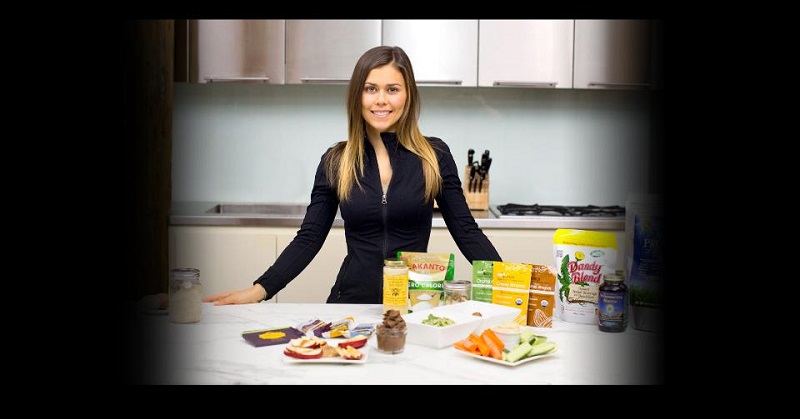One of the biggest obstacles that people face when they are trying to take control of their health is having no idea what to eat. Suddenly, all the meals that you used to prepare are no longer allowed on the menu, and you find yourself scrambling for ideas.
When the ingredients you have used for years are out, its time to get creative and experiment with different flavor combinations! This article is in response to the hundreds of questions that I get about what I choose to feed my body. I am sharing some of my go-to foods to help you see that eating healthy isn’t boring, and it certainly doesn’t have to taste bad!
My Personal Eating Style
Over the years, I have put myself into many “food boxes” and had to find my way out. Through my experience, I have learned not to label what I eat one way or another. Forget even using the word diet. I like to call it “my personal eating style,” a unique way of caring for my body by making loving food choices.
Today, it looks something like this: mostly plant-based, whole food, and a balanced diet.
I purchase as much organic and biodynamic as possible and go out of my way to get essentials like water from local springs and animal products like grass-fed butter (which I make into ghee) from trustworthy farmers who raise animals traditionally without antibiotics, hormones and GMO feed.
I steer clear of a lot of the main allergens (dairy, soy, gluten, eggs, and corn) for the most part because of my own sensitivities and allergies but also to prevent unnecessary irritation and inflammation. Therefore, I CHOOSE to avoid sugar, gluten, corn, all peppers and dairy because it is the most loving thing I can do for myself.
It is important to note the difference between being forced to give up something versus choosing not to eat it. Changing the way you view your eating style can be very empowering!
As you will notice, I also eat my fair share of cultured vegetables! This is because, without them, even a healthy diet is completely missing one of the most valuable ingredients for optimal health! The beneficial bacteria that we get from eating cultured veggies help us to digest our food better, support the immune system and balance the intestinal flora. Traditionally, a condiment-sized portion of sauerkraut was eaten with most meals, so that is what I aim for!
A few years ago, I was introduced to the practice of Food Combining. It was something that I tried a few times but ended up resisted implementing it regularly because it seemed to take all of the fun out of food. But alas, things have changed, and I have come back around full circle. I now see for myself the value and fully embrace food combining as a daily practice!
So, here’s what I eat in a day!
Upon waking:
Water and then hot water with lemon and fresh ginger to kick-start digestion. I usually sip this as I do my morning self-care routine.
Breakfast:
The body is ready to receive food from 7-9 AM, so try your best to wake up early enough to make yourself something healthy before you are out the door for the day.
I used to be a big fan of super-hearty breakfasts until I stepped back and looked at how it was making me feel…not so great! It may seem weird, but I love vegetables for breakfast!
I usually have some variation of my Green Ginger Soup with sauerkraut and some cold-pressed oil (alternate between coconut, MCT, sesame or olive oil as a garnish).
Tip: Always make sure you chew your food, so it has the opportunity to mix with your saliva. It will kick-start the digestion process.
OR
Roasted Veggies (usually left over from dinner the night before) with some organic spring mix, raw, organic tahini, sauerkraut.
OR
Sautéed Veggies with bone broth, quinoa or millet and sauerkraut.
Lunch:
During a time where most of us are so busy, we hardly remember to eat. Not me! Midday is when we have the greatest digestive capacity, and our body is ready to receive the most nutrition. Not eating lunch is a major disservice to your body, so if you are the type to snack all day and eat a massive meal late at night, you may want to rethink that.
Noon is the best time to eat lunch because the sun is highest in the sky. Eating with Mother Nature’s rhythms means we should eat the hardest-to-digest meals for lunch because we have more energy and time left in the day to process it. So, if I am going to go out for a meal that’s improperly food combined (eating a lot of raw vegetables, or animal protein), I will be sure to plan that for lunch.
Generally, my lunches look like this:
Summer: Big mixed greens salad with loads of veggies, quinoa, beans, avocado or nuts, sauerkraut and homemade salad dressing.
Winter: Roasted Root Veggies (rutabaga, turnip, carrot, squash, etc.) with spring mix, sauerkraut, and avocado.
OR
Kitchari – a traditional Indian dish made with rice (I usually sub this for quinoa), split yellow mung beans, loads of veggies and spices.
OR
Protein with steamed greens and roasted non-starchy vegetables (Brussels sprouts, daikon, turnip, cauliflower, burdock root, carrot, etc.).
Snacks:
- Superfood elixir
- Roasted squash seeds with sea salt
- Roasted veggies
- Sauerkraut
- Licorice and peppermint tea
- Sparkling water with lemon
- Fresh-pressed green juice
- Coconut water kefir
- Piece of fruit
- Raw veggies and homemade hummus
- Homemade dehydrator crackers and bread
- Homemade kale chips
- Trail mix – raw nuts and seeds (homemade is best!)
Dinner:
Always vegetarian (with the exception of bone broth), because its easier to digest. I try my best to eat between 5-7 PM, which is easier when eating at home but definitely doesn’t always happen when out for dinner or with friends. If we are eating past 7 PM, I eat as lightly as possible. At restaurants, I will order a cup of hot lemon water to start and likely a soup and small salad. Personally, I have set a food cutoff time of 9 PM because I found its so easy to get into the habit of late night snacking especially if studying for exams or at a holiday party where there is a delicious food table!
For dinner I try and eat warm, soft, mushy and soupy foods like soups and stews, such as:
Thai Coconut Vegetable Curry Bowl
OR
Blended vegetable soup topped with quinoa/millet/roasted root veggies, sauerkraut and some olive oil.
OR
Sprouted Lentil and Vegetable Stew with sauerkraut and a side salad.
OR
Sautéed Veggies and greens with bone broth (can use veg broth), avocado and sauerkraut.
Dessert:
None for me, thanks! Sweets do not combine with any food, plus I avoid all sugar to begin with.
Now that I have laid it all out for you, I want to say that my ‘personal style of eating’ is totally unique to me and is always subject to change. Our bodies are always evolving and needs different things at different times in our lives, so while this is what I eat now, it may not be what I eat forever.
For instance, this is what I eat in my day-to-day when I am working from home and have access to a kitchen when I want it, which is not always an option when you are traveling the world teaching at retreats! However, it is important just to do the best we can with what we’ve got and bless the rest!
I have done the work of experimenting and finding out what works best for me, and I encourage you to do the same so that you can discover your own personal eating style! I hope this little window of insight into my daily food patterns has helped you start thinking outside whatever box you’ve been in.
xx
PS: If you are looking for some additional resources on food combining and eating for optimal digestion, I highly recommend reading these two books:
Happy Belly: A Woman’s guide to feeling vibrant, light, and balanced
The Body Ecology Diet: Recovering Your Health and Rebuilding Your Immunity
For more inspiration and healthy recipes, check out
my other health blogs on DavidWolfe.com.
Click here to learn about my online school for Inspired Living!



